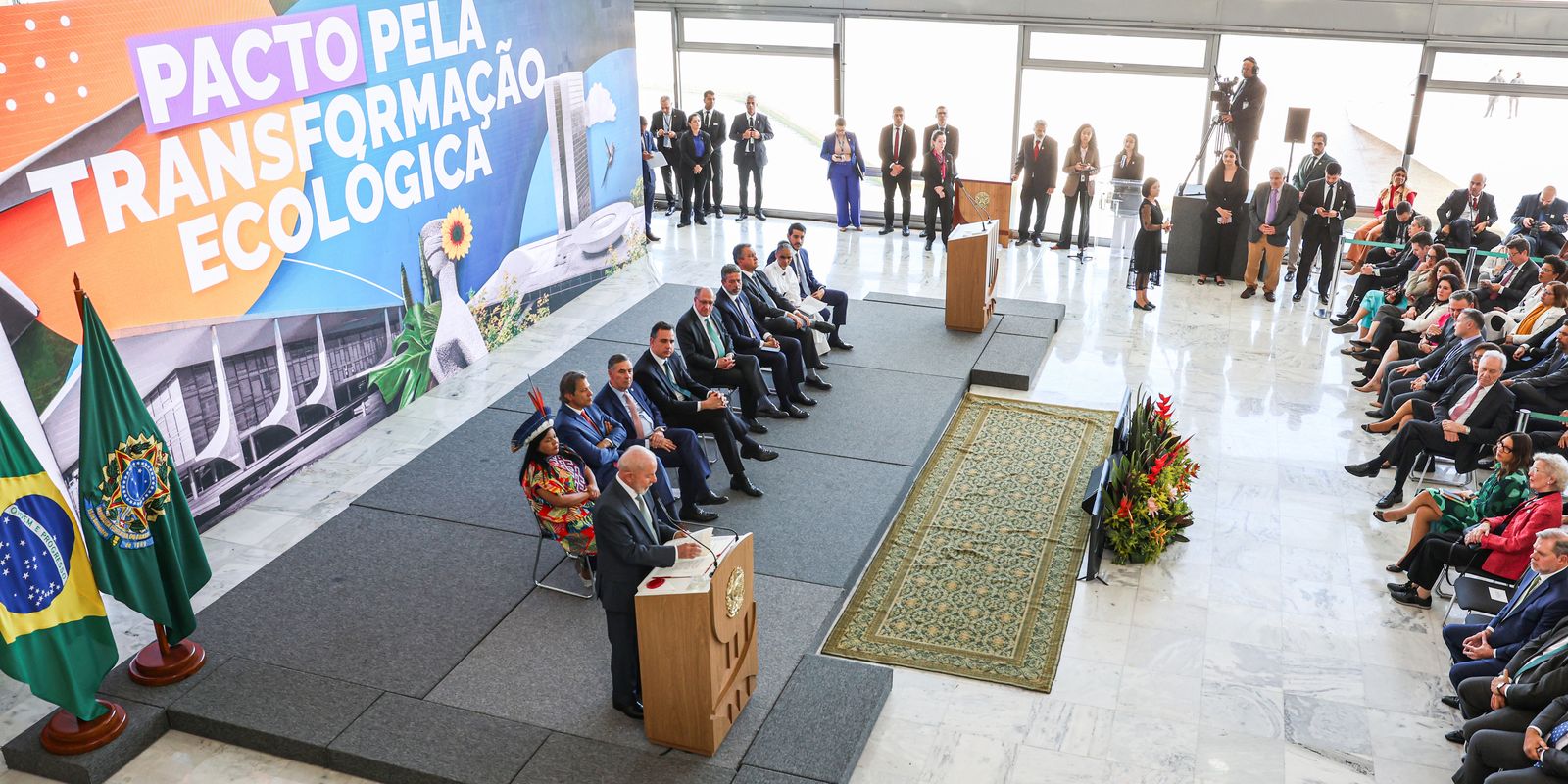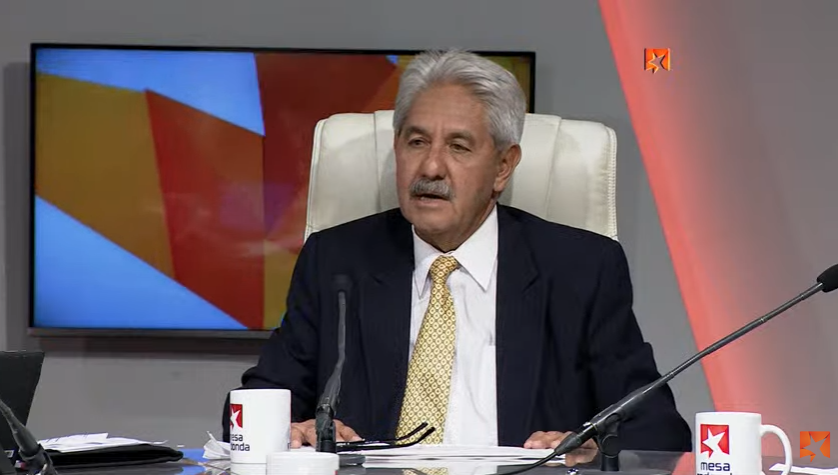To align environmental protection actions, amid worsening climate change, the heads of the Three Powers of the Republic – Executive, Legislative and Judiciary – signed this Wednesday (21), in Brasília, the Brazilian State Pact on Ecological Transformation. The event brought together, at the Planalto Palace, the president of the country, Luiz Inácio Lula da Silva, and the presidents of the Senate, Rodrigo Pacheco; of the Chamber of Deputies, Arthur Lira; and Luís Roberto Barroso, president of the Supreme Federal Court, and authorities.
The objectives of the pact, considered an unprecedented initiative between the Powers, include actions to change the country’s economic, technological, social and cultural paradigms, with a view to promoting sustainable development, ecological sustainability, protecting the rights of children and future generations, resilience to extreme events and social, environmental and climate justice.
“The pact we are signing today symbolizes the determination of each of us to face the greatest challenges of our time, with the depth and urgency that the climate crisis demands,” said Lula, highlighting that the union of the Three Powers around a common agenda also marks the “strength and maturity” of Brazilian democracy.
“Bringing the Three Powers together here today demonstrates very clearly that Brazil has returned to civilized normality,” emphasized Lula, highlighting that Brazil is the global protagonist in this agenda.
The president of the STF, Luís Roberto Barroso, celebrated the fact that Brazilian institutions have overcome the “denialism” regarding the problem of the climate emergency, which, despite this, still persists in sectors of society. “There are still many people who do not believe that we have a real problem affecting humanity, despite the fact that almost all scientists document that it is human activity on Earth that is producing this consequence.”
“There are no local solutions to this problem. Solutions need to be global,” the judge noted. According to Barroso, the Supreme Court will prioritize environmental and land-related lawsuits to be heard in court, in addition to promoting a broad decarbonization program in the Brazilian justice system.
In her speech, the Minister of Environment and Climate Change, Marina Silva, recalled that the United Nations Intergovernmental Panel on Climate Change (IPCC), composed of scientists from around the world, indicates that global warming will have a more dramatic impact on the tropics, where Brazil is located, “disproportionately increasing extreme events, seriously affecting economic growth, accelerating inequality and poverty throughout the world.”
“It is urgent to transform this scenario and, in this sense, we join forces for a fair transition to a new model based on the social, economic, cultural and environmental dimensions of sustainability,” he said.
Axes and actions
The actions foreseen in the pact are divided into three axes: territorial and land use planning (axis 1); energy transition (axis 2) and sustainable development with social, environmental and climate justice (axis 3). In total, the document lists 26 measures and the provision for the installation of a joint management committee, which will be responsible for monitoring the implementation of each of the actions.
The five main measures of the Pact for Ecological Transformation are:
1. The Executive Branch will expand financing and reduce the cost of credit for sustainable sectors, projects and practices;
2. The Legislative Branch will prioritize bills related to the pact’s themes, such as the approval of the legal framework for the carbon market, offshore wind energy production and biofuels;
3. The Judiciary will adopt measures to expedite legal demands involving environmental, land and climate issues, including the definition of goals and protocols for the National Justice Council;
4. The Executive and Judiciary branches will jointly integrate real estate, environmental, cadastral and tax databases, with georeferenced data, to ensure legal security over the ownership of public and private lands in the country and unlock investments.
5. The Legislative, Executive and Judicial branches will adopt management measures to reduce the direct impacts of their activities on the environment, such as sustainable bidding, reduced demand for natural resources, energy efficiency and proper waste disposal.
Political consensus
The institutional and political consensus around a common environmental agenda will facilitate the creation of norms and standards of conduct on the subject, assessed the President of the Senate, Rodrigo Pacheco. “With transparent and necessary definitions, the pact strengthens Brazil’s position as a leader in environmental, climate and food security, highlighting that sustainable development is the only way to guarantee the prosperity and well-being of present and future generations. This is a courageous, historic initiative and the result of alignment based on public spirit and responsibility towards future generations,” he said.
“There are challenges that demand broad and decisive coordination between all relevant stakeholders. The implementation of sustainable development is certainly one of them. The pact signed today can be seen as the manifestation of an essential strategic vision, for an effective response to serious and urgent problems that humanity faces,” said the president of the Chamber of Deputies, Arthur Lira.
















